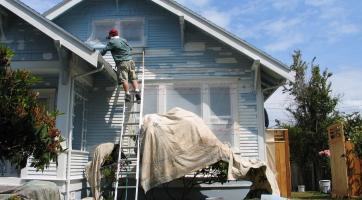Low-Income Americans Face Immense Justice Gap According to New Legal Services Corporation Report
WASHINGTON—The Legal Services Corporation (LSC) released a far-reaching new report on the crisis in civil legal aid, “The Justice Gap: The Unmet Civil Legal Needs of Low-income Americans,” at a public forum in Washington yesterday.
This is LSC’s fourth Justice Gap study that documents the volume of civil legal needs faced by low-income Americans, assesses the extent to which they seek and receive help, and measures the shortfall between their civil legal needs and the resources available to address these needs. The deficit between resources and need is called the “justice gap.”
The new study reveals that the justice gap is vast. Low-income Americans received no or inadequate legal help for a staggering 92% of all the civil legal problems that impacted them substantially.
These problems are widespread, with 74% of low-income households experiencing at least one in the past year, and 39% experiencing five or more.
In its 2017 Justice Gap Report, LSC, using slightly different methodology, found that 86% of the civil legal problems of low-income Americans did not get any or enough legal help.
In 2021, low-income individuals brought an estimated 1.9 million problems to LSC-funded legal aid organizations. LSC grantees were unable to provide any or enough legal help for an estimated 1.4 million of those problems.
They could not provide any legal help at all for one-half of the eligible problems low-income Americans brought to their doors. Previous surveys reveal that this “turn away” rate has not improved since the first Justice Gap Study in 2005.
“LSC’s Justice Gap Study serves to shine a bright light on the systemic failures that lead to injustice for millions of low-income Americans who cannot access legal assistance,” says LSC President Ron Flagg. “We must not let the overwhelming magnitude of these startling statistics obscure the personally devastating impact of the justice gap on the individual lives of our neighbors. The justice gap means, every day, our neighbors lose their homes unjustly, are subject to domestic violence without protection, or are denied their veterans benefits—the consequences of facing legal problems without legal assistance are acute and unnecessary.”
The most common types of civil legal problems low-income individuals and families face involve health care, housing, consumer issues and income maintenance. More than half of those who experienced a problem say it substantially impacted their life—with consequences affecting their finances, mental health, physical health and safety, and relationships.
As a result of the significant, persistent barriers preventing low-income Americans from receiving legal assistance, many people are skeptical of the civil justice system. Of those surveyed, only 28% agreed that people like them are treated fairly.
In cases where low-income people did not seek legal assistance for their problem, the belief that costs would preclude them from receiving legal help was the most common reason.
The new study offers insights into the COVID-19 pandemic’s disproportionate impact on low-income Americans. One third of low-income Americans personally experienced at least one civil legal problem related to the pandemic in the past year, compared to 18% of those at or above 400% of the federal poverty level.
The types of civil legal problems most likely to be attributed to the COVID-19 pandemic are those involving income maintenance, education and housing. More than one-half of low-income Americans experiencing problems related to unemployment benefits and eviction attributed them to the pandemic.
The study also provides special focus on seniors, veterans, children, survivors of domestic violence, people in rural areas and those with high housing costs.
This year’s study made several updates to improve the 2021 Justice Gap Measurement Survey and provide the most comprehensive estimate of the civil legal problems experienced by low-income people in America today.
For more details on the methods and findings of the 2022 Justice Gap study, visit the Justice Gap webpage where the full report, related videos and additional content can be found.
Contact
Carl Rauscher
Director of Communications and Media Relations
rauscherc@lsc.gov
202-295-1615
